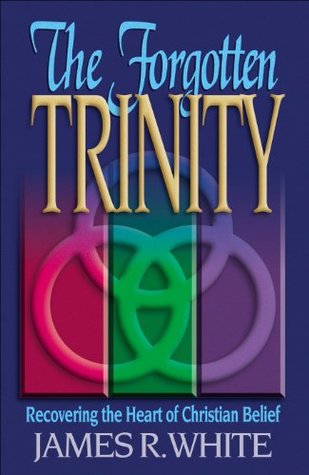More on this book
Community
Kindle Notes & Highlights
Read between
April 20 - May 25, 2020
Instead, we must always be asking Him to graciously open our clouded mind and reveal himself to us so that we may love Him truly and worship Him aright.
we realize that God is completely unique in the way He exists, and there are elements of His being that are simply beyond our meager mental capacity to comprehend.
But a godly attitude, the attitude that is imparted by the Spirit of God, bows in humble reverence, and instead of struggling, it embraces in love the God who is beyond all comprehension.
“person.” It will be our task (and it is a difficult one!) to labor to separate such “baggage” from our thinking and use such terms in very specific, limited ways so as to avoid unneeded confusion.
No true Trinitarian believes the Father was a “ventriloquist” at the baptism of Jesus, nor that Jesus was praying to himself in the Garden of Gethsemane.
is best to think of omnipresence more in the realm of “lack of spatial limitations” than anything else.
God’s being is not limited. And since God is omnipresent, another important truth can be seen: God’s being cannot be divided. What is half of omnipresence? How can the infinite be divided into parts? We will see why this is important when we consider how all the fullness of the being of God is shared completely by each of the Divine Persons of the Trinity.
Another important fact to note from this verse is that if indeed no one has seen the Father, then what does this tell us of the Son? Who did Isaiah see in Isaiah 6? Who walked with Abraham by the oaks of Mamre (Genesis 18:1)? None other than the preincarnate Jesus Christ, the eternal Logos. John will develop this thought later in his Gospel, as we shall see when we examine those passages that identify Jesus as Yahweh.
As long as one recognizes that the word “God” can refer to the Father, to the Son, to the Spirit, or to all three persons at once, the asserted contradiction is seen to be nothing more than a circular argument designed to avoid having to make the same confession that Thomas made long ago.
The author places Jesus far above any angel with respect to nature and function, and on a par with God with regard to nature but subordinate to God with regard to function. There is an “essential” unity but a functional subordination.[21]
Anyone familiar with a “redeemed people” in the Old Testament would recognize that Paul is applying the same terms used of Yahweh there to the Lord Jesus here.
Sharp’s study of the text of the New Testament led him to recognize that when the writer used a particular construction of “article (the word “the”)—substantive (noun)—καί,—substantive,” and when the personal nouns involved were singular and not proper names, they always referred to the same person.[25] The significance to Titus 2:13 is found in the fact that the phrase “our great God and Savior” fits this pattern exactly: τοῡ μεγάλον θεοῡ καί σωτῆρος ῆμώυ Ίησοῡ Χριστοῡ
But in the second passage (Col. ii. 9) St. Paul is declaring that in the Son there dwells all the fulness of absolute Godhead; they were no mere rays of divine glory which gilded Him, lighting up his person for a season and with a splendour not his own; but He was, and is, absolute and perfect God; and the Apostle uses θεότης to express this essential and personal Godhead of the Son.[40]
So we can see that rather than denying the deity of Christ, John 14:28 implies it, for the position into which the Son was returning is a position fit only for deity, not for mere creatures. This is brought out plainly in the words of Jesus in John 17 and His prayer to the Father: “This is eternal life, that they may know You, the only true God, and Jesus Christ whom You have sent. I glorified You on the earth, having accomplished the work which You have given Me to do. Now, Father, glorify Me together with Yourself, with the glory which I had with You before the world was” (John 17:3–5).
Therefore concerning the eating of things sacrificed to idols, we know that there is no such thing as an idol in the world, and that there is no God but one. For even if there are so-called gods whether in heaven or on earth, as indeed there are many gods and many lords, yet for us there is but one God, the Father, from whom are all things and we exist for Him; and one Lord, Jesus Christ, by whom are all things, and we exist through Him. (1 Corinthians 8:4–6) Here some wish us to believe that, just like in John 17:3, Paul’s use of the phrase “one God, the Father” excludes Jesus from the realm
...more
Daniel Wallace, Greek Grammar Beyond the Basics: An Exegetical Syntax of the New Testament (Grand Rapids: Zondervan, 1996), 207.
A. T. Robertson’s Word Pictures in the Greek New Testament (Grand Rapids: Baker Book House,
B. Warfield, “The Person of Christ” in The Works of Benjamin B. Warfield,


